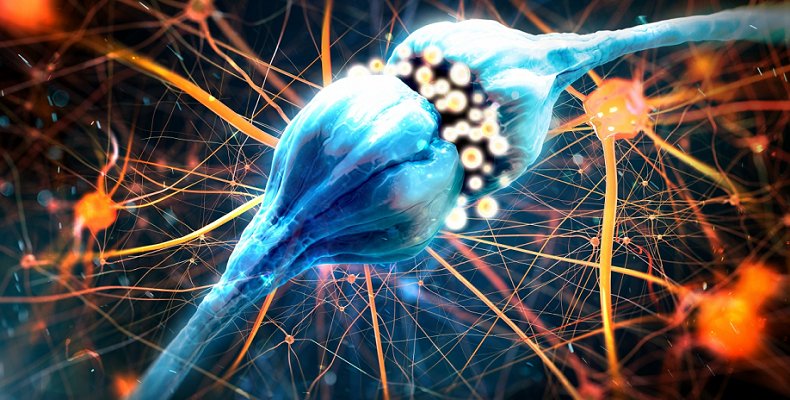
In the realm of cognitive enhancement and brain health, nootropics have emerged as a beacon of hope, promising improved mental clarity, memory, and overall brain function. Among these, N-Acetyl L-Tyrosine (NALT), a more bioavailable form of the amino acid L-Tyrosine, stands out for its unique ability to influence and enhance neurotransmitter function. Neurotransmitters, the brain’s chemical messengers, play a pivotal role in everything from our mood to our memory. However, their delicate balance can be easily disrupted, leading to a range of cognitive challenges.
Contents
Neurotransmitters and Brain Health
Neurotransmitters are the cornerstone of our brain’s communication system, playing an indispensable role in managing everything from our thoughts and emotions to our physical movements.
Explaining Neurotransmitters and Their Importance
Neurotransmitters are naturally occurring chemicals in the brain that transmit signals across a synapse from one neuron to another. They are key players in regulating mood, memory, attention, and a host of other cognitive processes. Neurotransmitters like dopamine, serotonin, and norepinephrine, each have unique roles – dopamine is often associated with pleasure and reward, serotonin with mood stabilization, and norepinephrine with alertness and arousal. The proper functioning of these neurotransmitters is essential for maintaining a healthy, balanced brain.
Role of Neurotransmitters in Cognitive Functions
The impact of neurotransmitters on cognitive functions cannot be overstated. Dopamine, for instance, is crucial for executive functions, motivation, and experiencing pleasure. Serotonin affects mood and social behavior, appetite and digestion, sleep, memory, and sexual desire and function.
Similarly, norepinephrine influences attention and responding actions in the brain. It’s this intricate interplay of neurotransmitters that enables us to think, feel, and react in a coordinated manner. When these neurotransmitters are in balance, our cognitive functions operate optimally, allowing for clearer thinking, better decision-making, and improved memory.
The Link Between Neurotransmitter Imbalance and Cognitive Issues
However, when there’s an imbalance in these neurotransmitters, it can lead to various mental health issues. For example, a deficiency in serotonin is often linked with depression, while an imbalance in dopamine could be associated with conditions like ADHD or Parkinson’s disease.
Norepinephrine imbalances can affect stress levels and anxiety. This is where N-Acetyl L-Tyrosine (NALT) comes into play. By aiding in the production of these neurotransmitters, NALT can help maintain their balance, thereby supporting overall brain health and cognitive function [1].

N-Acetyl L-Tyrosine (NALT) Explained
N-Acetyl L-Tyrosine, commonly known as NALT, is a modified form of the amino acid L-tyrosine, which is a building block for protein and a precursor to several important neurotransmitters.
Chemical Composition of NALT
NALT is essentially L-tyrosine attached to an acetyl group, which alters its properties and increases its bioavailability. This modification allows NALT to be more soluble in water and, consequently, more easily absorbed by the body compared to standard L-tyrosine. Once absorbed, NALT is converted back into L-tyrosine in the body and then used in the synthesis of neurotransmitters.
NALT Versus Regular L-Tyrosine
While both NALT and L-tyrosine serve the same fundamental purpose as precursors to neurotransmitters, the key difference lies in their respective absorption rates and bioavailability. NALT’s acetyl group enhances its ability to cross the blood-brain barrier more effectively than plain L-tyrosine. This means that NALT can potentially be more effective in influencing brain chemistry, particularly in stressful situations or when the body’s resources are depleted.
How NALT Influences Neurotransmitter Synthesis
NALT plays a crucial role in the synthesis of several neurotransmitters, especially dopamine, norepinephrine, and epinephrine. By providing a direct source of L-tyrosine, NALT helps ensure that the brain has enough raw material to produce these neurotransmitters as needed.
This is particularly important in situations of stress or cognitive demand, where the need for neurotransmitters increases. By supporting the production of these key neurotransmitters, NALT can aid in improving mood, cognitive function, and the body’s response to stress [2].
NALT’s Role in Enhancing Neurotransmitter Function
The role of N-Acetyl L-Tyrosine (NALT) in neurotransmitter function is pivotal. By providing a direct source for the synthesis of key neurotransmitters, NALT plays an instrumental role in maintaining cognitive and emotional balance.
NALT’s Effect on Dopamine Production
Dopamine, often referred to as the ‘feel-good’ neurotransmitter, is crucial for pleasure, motivation, and focus. NALT, as a precursor to dopamine, aids in its production, especially under conditions of stress or cognitive demand. Enhanced dopamine levels can lead to improved mood, increased motivation, and better focus. This makes NALT particularly beneficial for individuals experiencing dopamine deficiencies, such as those with ADHD or certain depressive disorders.
Impact of NALT on Norepinephrine and Epinephrine Levels
Beyond dopamine, NALT also contributes to the production of norepinephrine and epinephrine, neurotransmitters associated with the body’s fight-or-flight response. These neurotransmitters play a vital role in managing stress and anxiety. By boosting their levels, NALT can help enhance alertness, attention, and response to stress. This aspect of NALT is especially beneficial for people who face high-stress environments or those who require heightened concentration and alertness in their daily activities.
Importance of NALT for Brain Function and Mood Regulation
The cumulative effect of NALT on neurotransmitter production has far-reaching implications for brain function and mood regulation. By ensuring a steady supply of dopamine, norepinephrine, and epinephrine, NALT helps maintain a balanced emotional state and optimal cognitive functioning [3].
This balance is crucial not just for mental health but also for effective decision-making, problem-solving, and memory retention. Thus, NALT emerges as a key supplement for those looking to enhance their cognitive abilities and emotional well-being.

Optimal Use of NALT for Neurotransmitter Support
Integrating N-Acetyl L-Tyrosine (NALT) into your regimen for enhanced neurotransmitter support involves understanding its optimal usage. This includes knowing the right dosages, being aware of potential side effects, and considering its interactions with other supplements or medications.
Recommended Dosage Guidelines for NALT
The appropriate dosage of NALT can vary depending on individual factors like age, health status, and specific cognitive goals. Generally, a daily dose of 300 to 500 mg is recommended for cognitive enhancement purposes. However, for those dealing with high-stress situations or looking to address specific cognitive concerns, the dosage might be increased to 1000 to 1500 mg per day. It’s crucial to start with a lower dose to assess tolerance and gradually increase as needed. Consistent usage over a period is often necessary to observe significant benefits [4].
Potential NALT Side Effects and Interaction with Other Nootropics
While NALT is generally well-tolerated, it’s important to be aware of potential side effects, especially at higher doses. These can include gastrointestinal discomfort, headaches, or irritability. Rarely, excessive intake may lead to elevated blood pressure due to increased norepinephrine levels.
Additionally, NALT should be used cautiously when combined with other nootropics or medications, especially those that influence neurotransmitter levels, to avoid any adverse interactions. Consulting with a healthcare professional before starting NALT, particularly if you are on medication or have existing health conditions, is always advisable.
Best Practices for Maximizing NALT Benefits
To maximize the benefits of NALT, it’s recommended to take it on an empty stomach to enhance absorption. Incorporating it as part of a holistic approach to brain health, which includes a balanced diet, regular exercise, and sufficient sleep, can further augment its effectiveness [5].
Keeping a journal to track cognitive changes or mood improvements can also be helpful in gauging its impact over time. Finally, staying informed about the latest research and developments in nootropics can provide insights into optimizing the use of NALT for neurotransmitter support.
References
[1] L-Tyrosine Research
[2] What is the Difference Between N-acetyl Tyrosine and L-tyrosine
[3] Tyrosine
[4] Effect of tyrosine supplementation on clinical and healthy populations under stress or cognitive demands
[5] N-Acetyl-L-Tyrosine (NALT) for Focus, Mood, and Brain Power

